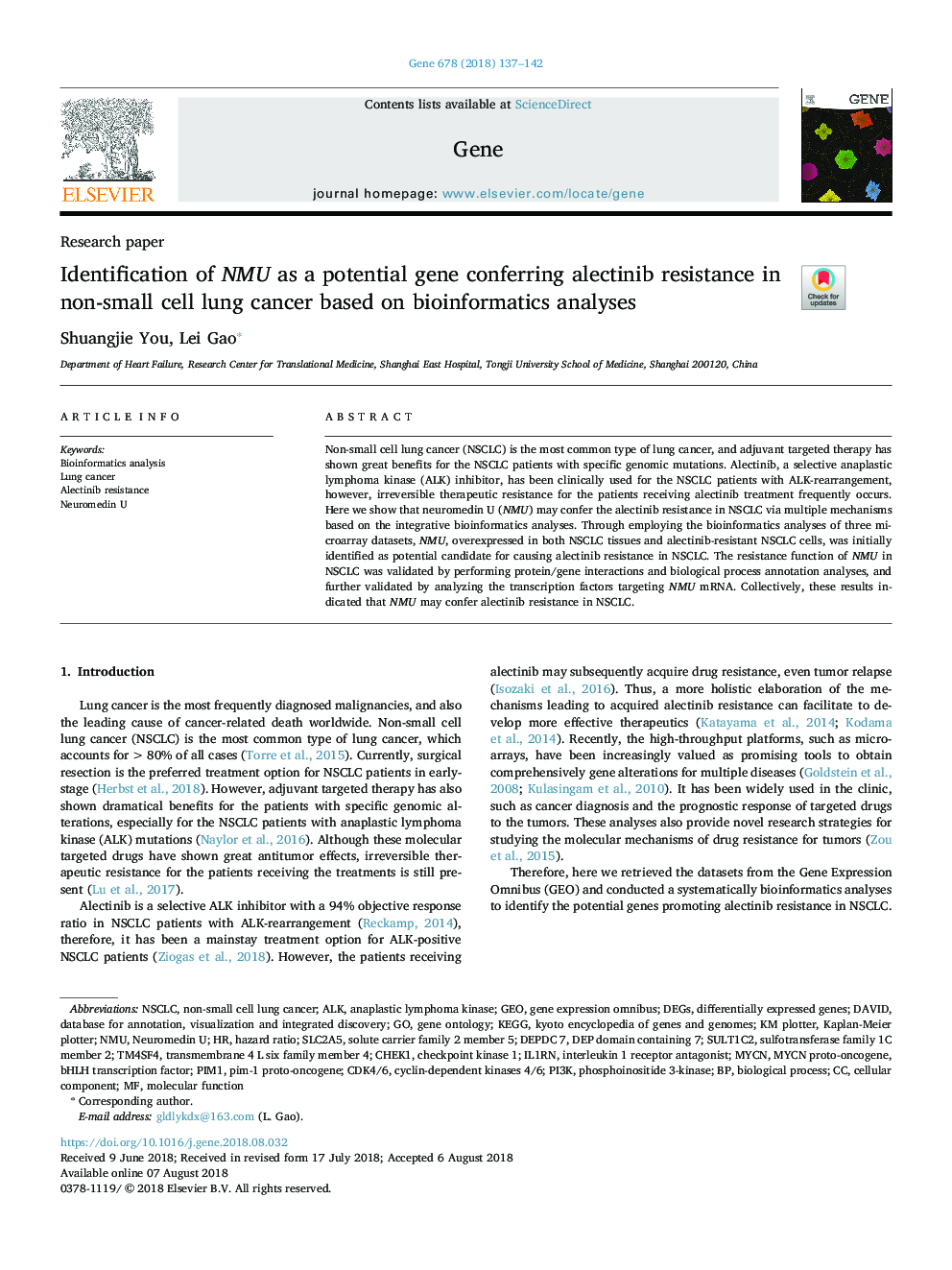| Article ID | Journal | Published Year | Pages | File Type |
|---|---|---|---|---|
| 8644384 | Gene | 2018 | 6 Pages |
Abstract
Non-small cell lung cancer (NSCLC) is the most common type of lung cancer, and adjuvant targeted therapy has shown great benefits for the NSCLC patients with specific genomic mutations. Alectinib, a selective anaplastic lymphoma kinase (ALK) inhibitor, has been clinically used for the NSCLC patients with ALK-rearrangement, however, irreversible therapeutic resistance for the patients receiving alectinib treatment frequently occurs. Here we show that neuromedin U (NMU) may confer the alectinib resistance in NSCLC via multiple mechanisms based on the integrative bioinformatics analyses. Through employing the bioinformatics analyses of three microarray datasets, NMU, overexpressed in both NSCLC tissues and alectinib-resistant NSCLC cells, was initially identified as potential candidate for causing alectinib resistance in NSCLC. The resistance function of NMU in NSCLC was validated by performing protein/gene interactions and biological process annotation analyses, and further validated by analyzing the transcription factors targeting NMU mRNA. Collectively, these results indicated that NMU may confer alectinib resistance in NSCLC.
Keywords
PI3KSLC2A5CHEK1NMUPIM1IL1RNCDK4/6Neuromedin UDEGsGEOMYCNALKInterleukin 1 receptor antagonistcheckpoint kinase 1Molecular functionBioinformatics analysiscellular componentKEGG یا Kyoto Encyclopedia of Genes and Genomes Kyoto Encyclopedia of Genes and GenomesDAVIDLung cancerNSCLCNon-small cell lung cancerbiological processphosphoinositide 3-kinaseAnaplastic lymphoma kinasehazard ratioGene ontologydatabase for annotation, visualization and integrated discoveryGene Expression OmnibusDifferentially expressed genes
Related Topics
Life Sciences
Biochemistry, Genetics and Molecular Biology
Genetics
Authors
Shuangjie You, Lei Gao,
